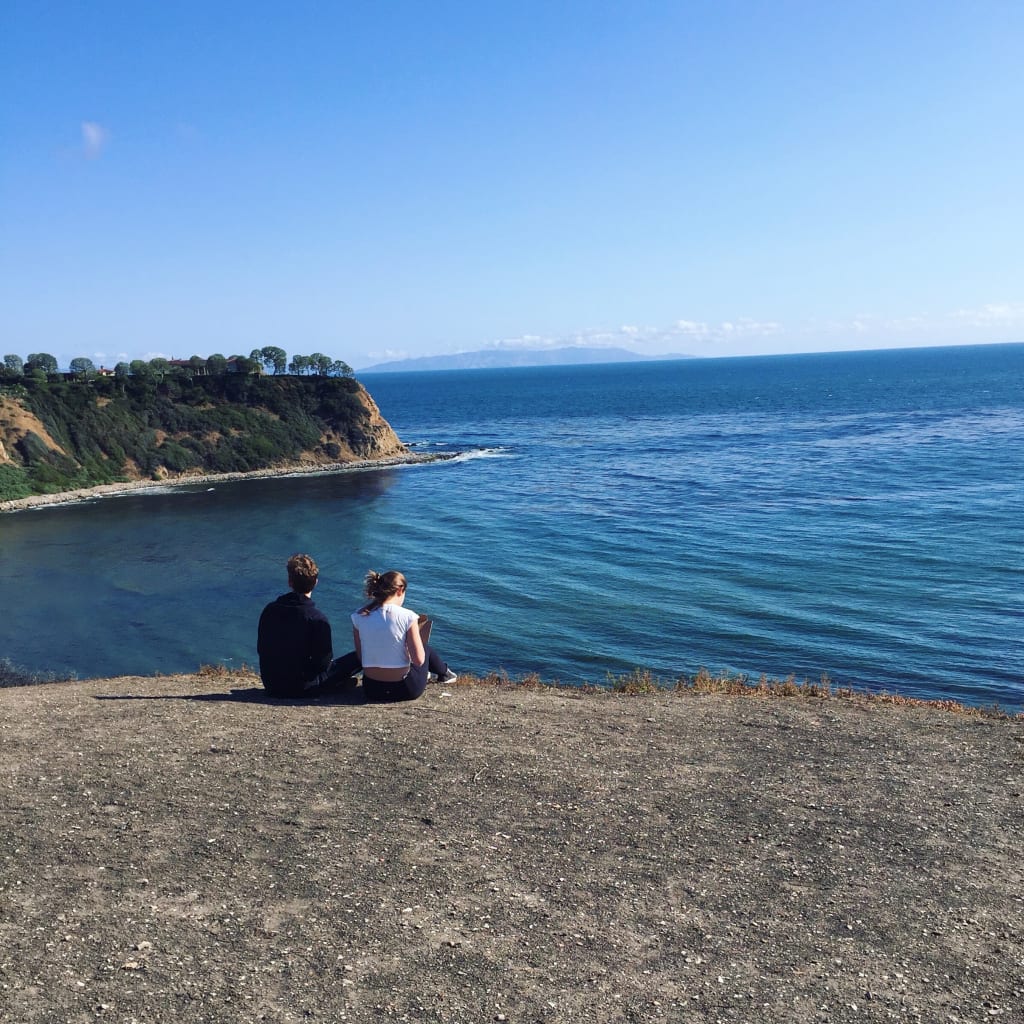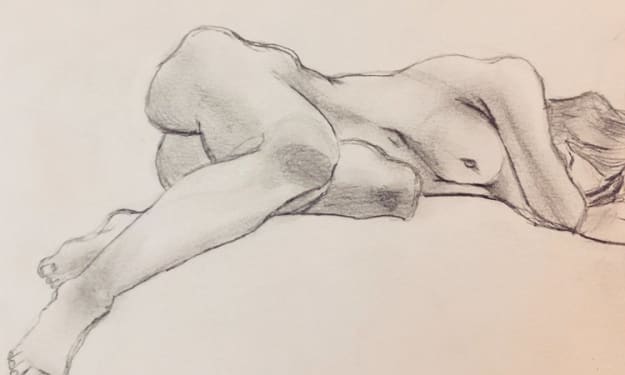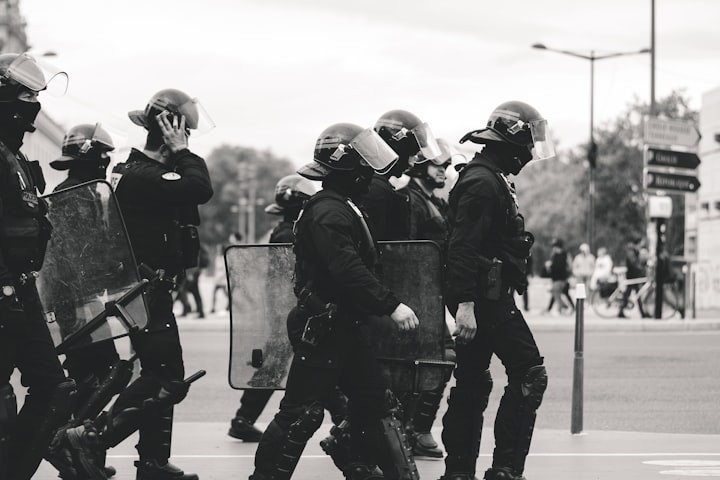Nathan's Story
Before and After My Boyfriend Lost His Memory

Nathan’s room was blue, but it isn’t anymore. We used to draw all over his walls—impossible triangles, strange faces, intricate patterns. We’d planned to cover the ceiling, too. We would sing Beatles songs and eat fruit and talk philosophy.
“You know, Jess,” he said, “When a thing ends, it isn’t really the cessation of that one possibility—it’s the introduction of new possibilities.”
I was a child with him—we spent hours in the minds of our two and three-year-old selves, simply lying around, imagining and breathing. When I was afraid of home, I would run to his house, crawl in through his window, and be two again in the comfort of his pillowed blue room.
I felt unconditionally loved for the first time. I was sixteen.
In March of 2016, I lay on a couch that wasn’t mine, and suddenly felt hollow, or carved into. During my phone time at La Ventana, an eating disorder treatment center, I called my boyfriend of two years twice.
I expected to speak with him, a conversation that would likely begin “Hey, Jay!” and consist mainly of my tales from another strange day in treatment.
He’d tell me I was strong, although I’d lost most of my muscle mass. He’d convince me that I was capable of great things, even if I could barely digest food. Nathan knew how to foster hope within me—if not a witty remark, a playful jab. He would critique my disorderly habits fondly, loving me as I was, yet gently pushing me into the abyss of adulthood. And, if he answered, he’d end the call by telling me to stay great.
The conversation did not happen. I now recall every missed ring as a declaration of war, every tick a time bomb. When he didn’t answer the second call, I felt alarmed for no reason. I ran, tears streaming, into the night staff’s office, and asked to call my mother. The nurse was reluctant but allowed it when she saw my panicked state. Just contact his dad. Call his dad, now. Something is wrong. Please. My mother replied simply.
“Nathan’s in the hospital.”
My adolescent mind began to reel like a fishing line with nothing caught. I had just spoken with him the night before. He was going to visit me today. My memories of Nathan flashed before me: a moving picture with infinite endings. I thought perhaps a car accident, nothing too serious. A broken leg. Not his head. Please, not his head. My own current state—malnourished and desperate—disappeared from my sight as my mother picked me up from the treatment center and took me to the UCLA Medical Center. I was silent throughout the car drive, and silent as I sat in the waiting room for hours, waiting for news.
As I sat, I thought of the missing letter. When I had to go into treatment for anorexia—again—I would await handwritten letters and drawings from Nathan. He was eloquent in the kind of way that forced me to hold my breath as I read. His loopy handwriting made me feel safe. He told me he’d sent a letter, but I’ve never received it. I later returned to the center to look, but it still hadn’t arrived. When I called the post offices around Thousand Oaks, they couldn’t find it. I still wish I knew what he’d written.
Nathan had an arteriovenous malformation—a walnut-sized conglomeration of tissue had burst, bleeding throughout his brain. The surgeons who operated on him spent a total of twenty hours oxygenating his blood vessels and removing intracranial pressure by releasing fluid from his skull. He fell into a coma.
I’d seen Nathan sleep many times. We would sometimes spend half the day snoozing. I remember Nathan and Simon, the dog we’d adopted, lying together in boy-and-puppy slumber. I would watch his breath rise and fall like empires. His long eyelashes fluttering slightly, his lips gently parted. This time was different.
When I saw Nathan sleeping there in the hospital, my heart felt like a clump of tissue in my chest, prepared to rupture at any moment. His head was shaved. A chunk of his skull had been removed to release pressure, the skin on the left side of his head indented—a crater. Nathan lay, breathing sweetly with the help of a ventilator, his vitals precarious. He looked pale and small in the sterile room.
I spent that spring in the Intensive Care Unit. Things went slowly. I had no choice but to maintain patience and some semblance of hope. When Nate opened his blue eyes, I lay gently on his chest, listening to his assisted breaths, and whispered that I loved him. His first purposeful movement was to touch my face and stroke my hair. I kissed his cheeks.
I remember thinking that maybe things could return to normal, that we could go back to growing up together. I thought his mind might come back whole, wrapped in sewed-up scalp—the perfect gift.
For the previous Christmas, Nate had given me a handwritten note and drawing, and a little knitted dolphin keychain. I kept it in my car, a token of security and love. We sat around a tiny tree in his small living room and felt like it could have been any year of our lives.
I remember these kinds of things as if they’d happened ages ago; time is blurred when it comes to trauma. It becomes less of a tool to measure the weeks and more of a strange, foreign entity that drags on and on, repeats and progresses, makes its way forward and then loops back around—like a letter lost in the mail.
My brain goes almost blank when I think of past Nathan. Maybe it’s unconscious solidarity. When I miss him, I miss him entirely—my mind has a sort of gap where he should be. I will never know him again, not even his voice on the telephone or in a letter. We will never talk philosophy or draw on the wall together. We won’t raise a puppy.
When Nathan began to learn to speak again, a few things became clear. First, I came to understand that Nathan now lacked the ability to consolidate short term memories. Our minds were no longer in sync in the way they were before, and Nathan would never live on his own or have a normal relationship again. I came to realize that we would not be together. And I came to know that the world had lost my brilliant best friend and gained someone entirely new.
Nathan can’t remember how old he is. He remembers my face, but he doesn’t remember what we’ve done together. He knows who I am, but he doesn’t know what I’m like. He knows he loves me, but he doesn’t know why. Sometimes the smaller things are more unnerving. Like how he fixates on the Beatles in a way that he never would have before—perhaps his subconscious holding whatever remnants of identity it can. Or how he asks the same questions, sometimes in a row. Or that he now speaks crudely, likely a result of bleeding throughout his prefrontal cortex. No, he is not the same person.
I was angry. I was angry that God-as-I-understand-him would allow for this. I was angry that I’d have to go back to treatment and continue to recover from my eating disorder, as if nothing much had ever happened. I was alone in the world, and devastated. So I wrote.
I wrote because my life depended on it. My confidante had gone away, and so I became my own. Forced to look my problems dead in the eye, I resourced what Nathan had always told me—I’m strong, I’m capable, I’m great. Nothing went unacknowledged; my struggle was mirrored back to me through my many journals until I had an arsenal of identity. I fell and rose like empires. And I began eating. Amazingly, Nathan gave me the tools I needed to deal with the trauma of his loss.
Although his mind will stay nineteen years old, present Nathan brings light to what is happening now, what is true, what is real. Present Nathan is full of energy and excitement—for him, everything is a wonderful surprise. A blue sky. A loud honeybee. An ugly carpet. He has honest preferences and true attitudes, plenty of character, and the purest laughter I’ve ever heard.
Nate notices things like unique leaves on a walk, or my mother’s shiny necklace. He mentions every single car on the street. He says “Aww” when someone on TV looks sad. We can be two and three, eating fruit and singing Beatles songs, curious about what’s happened and curious about what’s to come. But we won’t grow up together.
I sometimes picture how our lives will look in ten, twenty years.
I imagine a scene in which I tell him, “Nathan, I’m getting married.”
He looks back in excited confusion.
“Congrats, Jay,” he might say, wondering when our wedding will be.
I tell him I love him when I leave his Assisted Living, but I don’t return for months. These kinds of scenes break my heart. I wonder whether he will grow old still commenting on each car in the street. I wonder how he will feel when he looks in the mirror and briefly realizes that he’s no longer nineteen. But for now, we are young.
I recently visited Nate at Ryan’s Reach, the home where he now lives, for his twenty-first birthday. The air was fresh and the sky full of possibilities, unhindered by the past or the future. Clouds morphed through several shapes before dissipating into the blue. We talked about how I’m in school and how old he’d turned that day. I was thrilled when, laughing, he remembered Simon the dog. We ate cake and got it on our faces. We danced with his young nieces and felt young ourselves. We played a game of Uno with his parents. Later, I gave him a present—a little knitted dolphin keychain—and he absolutely loved it.
About the Creator
Jessica O’Brien
Poet and visual artist whose work has been recognized for its empathic portrayals of grief and grace.







Comments
There are no comments for this story
Be the first to respond and start the conversation.